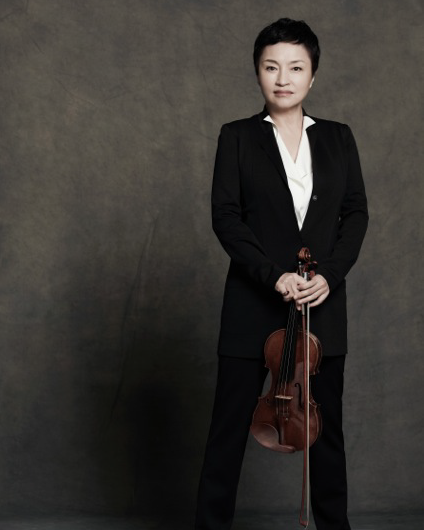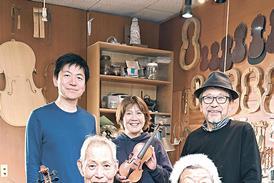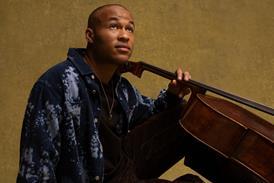Our focus has been wrong all along, argues Toby Deller

When Kyung Wha Chung addressed the parents of a young child in the audience at her Royal Festival Hall recital in December, igniting a media furore, reports of the incident fell mainly into one of two narratives.
According to the first, she angrily berated a child for coughing, saying she was too young to be there and scolding her parents with the words, ‘Bring her back when she’s older’; her reaction not only sent a message to the world that classical concerts are unfriendly places, but also one that might scar that particular child for life. Those defending Chung said that she was right to say what she did: the child was too young; the coughing was a distraction; the parents were wrong to have brought a sick youngster to a concert.
Neither view portrays the 66-year-old violinist, with her apparent ability to sour the atmosphere with an icy look, very sympathetically. Neither view considers the possibility that she might have been speaking out of kindness, feeling sympathy for a child who appeared to be in discomfort – her words meaning, ‘Try again when she’s older,’ rather than, ‘Take her away until she’s older.’ And it’s not just her words that may have been misinterpreted. Is it not possible that commentators saw a stern, cold face in place of, well, just her face?
The two dominant versions of events allocate the blame either to Chung or to the parents. They both skate over the possibility that there was another culprit. Namely, an audience of adults who themselves coughed with such force that the violinist was visibly surprised, and who continued coughing despite a couple of attempts on Chung’s part to resume playing, prompting a ripple of laughter that seemed to spur the coughing on further. Little attempt was made either to muffle the noise or curtail it. I was in the audience, and to me the concertgoers’ behaviour seemed inappropriate, rude, childish and intrusive. Chung’s words brought this oafish repartee to an end, and judging by the more modest coughing during the remainder of the recital, the audience must have felt reprimanded.
So why is it that the audience behaviour has been so readily excused or even ignored in coverage of the incident, when the same forbearance has not been given to Chung? Why have reports been so fast to accuse her of endangering classical music when her passionate playing must have inspired thousands over 40 or more years? Why such intolerance? We can only guess at the pressure she was under at the time, whether from the occasion, from getting to grips with Mozart and the acoustic, or because she felt goaded by ill-mannered behaviour.
What has been overlooked in this debate is the fact that an individual, human, feeling artist is at the centre of it all. It is a reminder that the act of performance is not to be taken for granted by the audience, that a performance is not a seamless process whereby a well-trained robot translates written music into corresponding sound. If that’s where classical music is heading, we might well be worried for its future.
Rather, we watch musicians perform on stage in part to watch their personal drama, their personal engagement with the music at a particular place and moment. We should not be surprised if that breaks the smooth surface of the occasion, or the interpretation, from time to time. That is not to say we should tolerate shoddy performance. It’s not a question of lowering our standards, but of having a broader appreciation of artistic creation, its process and our role as an audience within it.
That also means being less prescriptive in our expectations and not denouncing a performer, as one critic did, for being distracted in concert. After all, who are we to demand how a musician works? Particularly one who has been playing internationally for so long, from such a young age, and certainly longer than almost any female violinist. Instead of presuming to tell such a uniquely experienced pioneer how to behave, shouldn’t we look to her for lessons?
Kyung Wha Chung is interviewed in The Strad’s December 2014 issue. Subscribe to The Strad or download our digital edition as part of a 30-day free trial. To purchase single issues click here.







































No comments yet